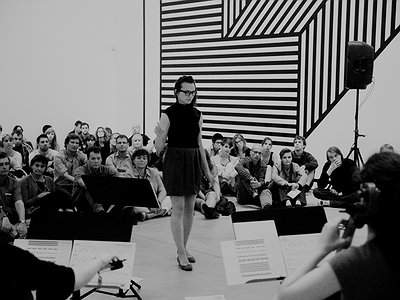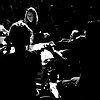Name: Christina Vantzou
Nationality: American
Occupation: video artist / animator / composer
Bands/Projects: The Dead Texan /videos for Dustin O'Halloran and Sparklehorse /solo work
Labels: Kranky
Musical Recommendations: Johann Johannsson /Seabat
Over the course of her career, Christina Vantzou has collaborated with a wide range of artists, including Félicia Atkinson, John Also Bennett, Sarah Davachi, Michael Harrison, and Adam Wiltzie of A Winged Victory For The Sullen.
[Read our Félicia Atkinson interview]
[Read our John Also Bennett interview]
[Read our Sarah Davachi interview]
[Read our A Winged Victory For The Sullen interview]
[Read our Michael Harrison interview]
When did you start writing/producing music - and what or who were your early passions and influences?
I started writing music in 2007. I was passionate about music early on. Tina Turner and The Talking Heads made a very big impression on me when I was little.
What do you personally consider to be the incisive moments in your artistic work and/or career?
A light bulb went off in my head when I met Mark Linkous. His graciousness on a tour in 2007 taught me volumes.
What are currently your main compositional- and production-challenges?
Figuring out how to perform works that are composed, edited and mixed on a computer.
What do you usually start with when working on a new piece?
A midi keyboard and a midi sample library with orchestra and synth sounds.
How strictly do you separate improvising and composing?
Very. I’m not a fan of the word improvising. The word now has a connotation to it because we’ve learned what 'improv' sounds like.
Composing doesn’t have that limitation.
How do you see the relationship between sound, space and composition?
I like to think of them as closely related. Concerts are a kind of sound installation. The space and more so the audience create an energy together with the sound. I find that the combination of energy that exists in a performance space is very unique.
Do you feel it important that an audience is able to deduct the processes and ideas behind a work purely on the basis of the music? If so, how do you make them transparent?
No. I don’t feel that’s important at all. That’s what’s nice about music. You can like it and you don’t need to know why.



